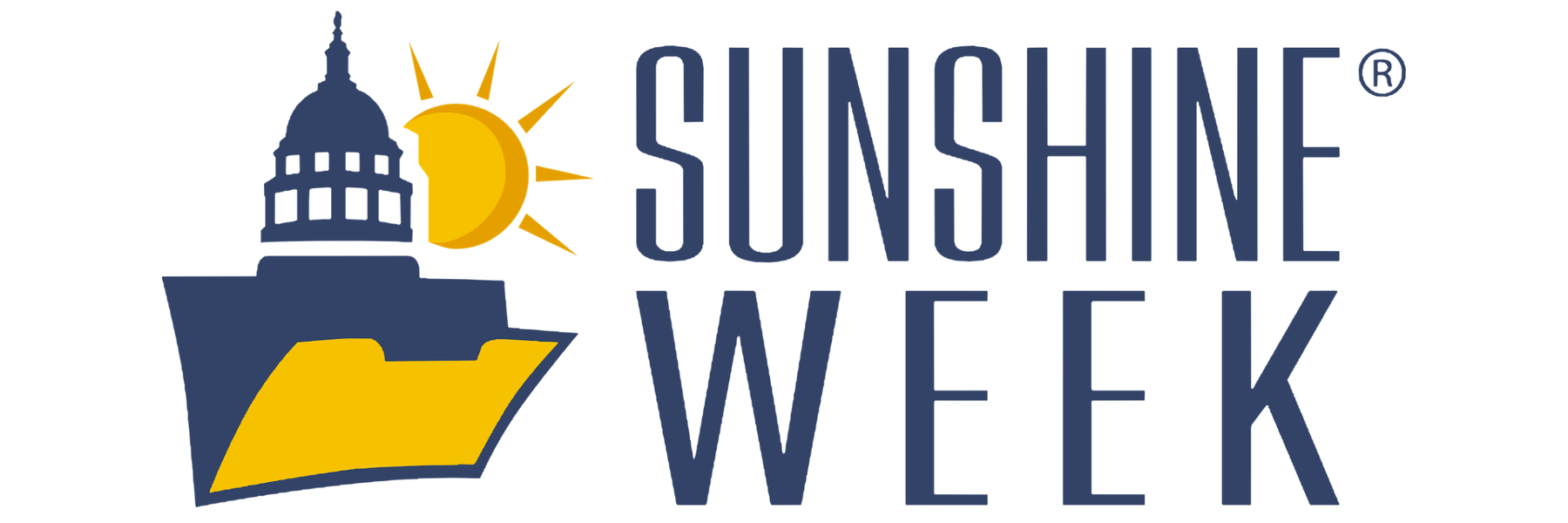
Since the 2007 Open Government Act, the Office of Government Information Services (OGIS) has had a mandate to help mediate disputes between requesters and FOIA offices. With the 2016 FOIA Improvement Act, the responsibility of the office has been further expanded.
In this Agency Voice, OGIS director Alina M. Semo, who became the third director of the office last November, shares her view on the challenges and opportunities ahead for the FOIA community.
This Sunshine Week, FOIA is fifty. How is it doing? Where is it strong, and where would you like to see it improve?
One of FOIA’s greatest strengths is the large amount of dedicated people inside and outside of government who are committed to ensuring that the public has access to records that improve our understanding of the government. The continued desire to have FOIA succeed has grown stronger every year since President Johnson first signed it into law. At many agencies, though, backlogs and delays continue to be a huge source of frustration. A lack of understanding about the FOIA process, coupled with requesters and agencies who fail to communicate effectively further compounds that problem.
How would you describe OGIS’s role in the FOIA world today, and [what?] how do you want to see OGIS accomplish under your tenure?
OGIS has played a critical role in the FOIA process since our doors opened in 2009, and we are continuing our efforts to help improve the administration of FOIA. We have developed a robust dispute resolution program that assists agencies and requesters by improving communication and creating channels that allow the parties to develop a path forward on complex matters. We have also launched a unique agency compliance assessment program that leverages FOIA expertise and government auditing standards to provide agencies with actionable recommendations to strengthen their FOIA program.
Congress’ decision to expand our involvement in resolving disputes throughout the FOIA process and to reinforce our role in improving compliance is a testament to what OGIS has been able to achieve in just a few short years.
My short-term goal is to work with my small staff and the National Archives’ leadership to ensure that we can keep up with demand for our dispute resolution services. Our expanded role in the FOIA process has increased our case load and we need to find new ways to ensure that we can meet the incredibly wide-ranging needs of customers who have varying levels of expertise in the FOIA process.
My longer-term goal is to continue to educate agencies – and a new generation of FOIA professionals – via the Chief FOIA Officers Council and through other means of communication – about how OGIS’s mediation and compliance programs can help agencies improve the FOIA process.
Given your background in litigation and now your role leading mediation, where do you think the balance between the two is?
Whether a case ends up in litigation or if the issues can be successfully mediated by OGIS is dependent to a high degree on the incentives of both the FOIA requester and the agency. The most powerful incentive that will bring parties to OGIS’s rhetorical mediation table is the threat of losing in court, which can be costly and create complicating case law for other agencies or requesters.
While I think a proportion of the FOIA cases filed each year could have been resolved either through bilateral communications between the agency and the requester, or through OGIS’s services, it is still important to realize that courts play a critical role in the FOIA process. Federal court decisions provide agencies and requesters with clear guidance about the administration and application of the statute.
Our goal is not to eliminate FOIA litigation; there will always be important legal issues that require judicial resolution. OGIS provides a non-exclusive alternative to litigation that allows the parties to come to a mutual agreement or at least reduce the number and scope of issues in dispute.
Can you talk about your experience with FOIA, whether as a requester or on the receiving side? What were your impressions of how the process works?
I do have experience as a FOIA requester: I needed to obtain records and information from a federal agency for use in a private matter. But I had the benefit of both understanding the FOIA process and what I would be entitled to receive, which helped me narrow both the nature and date scope of my request. My targeted request helped the agency identify and retrieve the records relatively quickly. I imagine the process is much more difficult for a requester that does not have experience with FOIA. My experience as a FOIA requester helps me understand the importance of good communication between and agency and requester, and the importance of having an office like OGIS to educate the public about the process.
What’s something you wish requesters knew about how the FOIA process works?
I think there is sometimes a mistaken equivalence between an agency’s use of an exemption and government secrecy. FOIA processors do the best they can with the resources they are provided to process and release agency records without jeopardizing information that truly needs to be protected – including personal privacy and national security.
I also want to help FOIA requesters better understand the limits of OGIS’s authority, and how we can assist them. In order for our dispute resolution services to be useful, both parties must be active participants and contribute towards a final agreement; we cannot force either party to accept a particular agreement or to take any particular action.
What do you wish FOIA offices kept in mind about requesters?
It is important for agency FOIA professionals to realize that the FOIA process is something of a black box for a requester: a requester is more likely to be satisfied with what they receive if the agency exercises good communication skills and helps them understand what steps it is taking to respond to the request. There are at least two critical areas where communication with a requester can really make a difference:
-
perhaps more than anything, requesters want to know where they are in the process; OGIS recommends that agencies reach out to requesters periodically to provide updates and set honest expectations for estimated release dates; and
-
have a genuine conversation about what is being requested, what the agency may or may not have and what the requester may or may not be able to obtain.
How can OGIS and FOIA play a role in helping build trust with a public that is very skeptical not just of government, but of traditional information sources, like news media?
FOIA, ultimately, is about access to government documents. If the process is working as it should, the public should be able to gain access to documents that will uncover any government waste, fraud or abuse, as well as documents that demonstrate that our government is functioning as it should. OGIS can play a critical role in building trust between requesters and agencies and helping each understand the other’s position. Every time a requester comes to OGIS for assistance with a FOIA dispute our goal is to, at a minimum, help them better understand the agency’s actions, but also assist the agency in understanding what the requester’s concerns are. OGIS’s success lies in its ability to foster open and effective dialogue in order to promote access to important government documents.
As information becomes increasingly instantly accessible in almost every realm of life, FOIA seems to be getting slower and slower. Do you think this is inevitable, and if not what changes would need to happen?
The increase in electronic records is something of a double-edged sword for FOIA offices. On one hand, as we continue to move to a place where almost all responsive records were born and remain digital throughout their life-cycle, agencies should be able to search and review records more efficiently. On the other hand, the increase in electronic records also expands the universe of potentially responsive material that agencies can locate and process. Agencies will need to be able to invest in more sophisticated processing platforms and tools like e-discovery in order to make review and release more streamlined.
What do you think of the health of the FOIA community? What do you think the requester community, writ large, could build on? Where do you think the agency side of FOIA can build on?
There is a robust contingent of civil society groups and individual advocates, including open government and journalist contingents, who will continue to champion more access, faster access, and less expensive access to agency information. I think that is healthy for the FOIA process.
We need to recognize, though, that FOIA resources are limited at each agency and that certain types of requests or requesters can fairly easily monopolize an agency’s resources. Requesters can make the system work better for everyone by being cognizant of the burden that a certain request might place on a FOIA office and being willing to negotiate the scope of their requests. FOIA offices can also help address the issue by having open and honest dialogue with requesters about the types of records the agency has and what it takes to search and review those records.
What are some of the most exciting or promising developments in government transparency that you’ve seen, whether in or out of the realm of FOIA?
I think the use of technology in FOIA holds great promise for improving the access process – both for agencies and for requesters. Agencies’ responses to requests have been driven in large part by the nature of the records they maintain – and more importantly – the format in which they maintain them – until recently, predominantly paper. As more and more records become either digitized or maintained in electronic native format, the speed with which agencies will be able to review and process records should increase; however, that will only happen if agencies are able to receive necessary funding to purchase the technology tools that exist today and that continue to be developed.
Image via Wikimedia Commons and is licensed under CC BY 3.0




